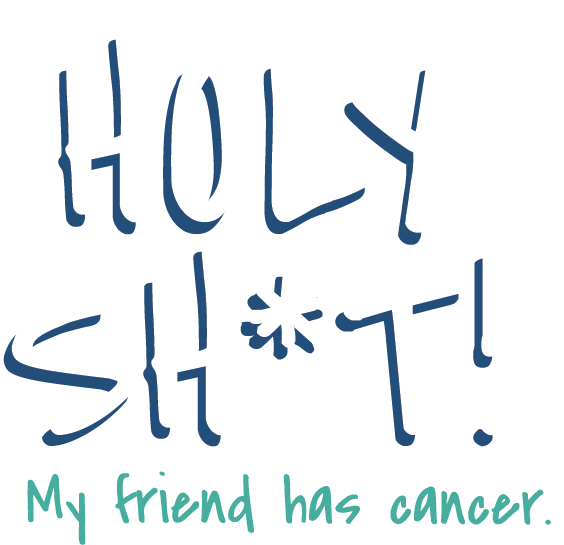If your friend is under 35, chances are they have an enormous digital footprint. If your friend is anything like Crystal, that footprint has the potential to reach you on every device, in every social app, anytime you login, from absolutely anywhere. It’s a real mind fuck. For me, the surprise and renewed pain that overwhelmed me each time I discovered a new digital connection to Crystal was among the most gut wrenching parts of the grieving process. I’m not talking about Facebook — yes, the girl never took a bad photo, and of course there was a huge outpouring of sentiment on the platform after she died and yes that means her stories and tags always floated to the top of my feed. But this was expected — if I wanted to avoid it, I could just not open facebook. No, I’m talking about the surprises that ruin your afternoon, the ones you're not prepared for, the ones you didn’t realize you had to avoid.
After Crystal died, I saw her name in my gchat window for months. Instagram updated their UI, and I received a few of her DMs I must have missed before. Linkedin asks me to endorse her. She owns google docs at work. We share Trello boards for projects, dating, and personal goals. She’s in my recent contacts on Whatsapp, because I only use it with a few friends abroad and can’t seem to delete our conversation. And a year later, she’s still a top friend on snapchat. It’s haunting. I’d like to delete everything. I can’t.
Stories
"I have an awesome life with a bad thing in it." — Crystal Ruth Bell
A Little Bit About Crystal
The rest of this website is pretty straightforward advice on making life suck a little less when your friend has cancer — advice we wished we had when Crystal was around. In order to help as many people as possible, we kept things simple. But people are complex and complicated, and there are so many more things we could say about Crystal, about how great she was and how hard it's been without her. Writing is cathartic, so we made this page a place for people who knew her to share stories, memories, anecdotes and pretty much anything else they'd like.
If you have a story you'd like us to add, get in touch with Jess, Julie, or Kira!

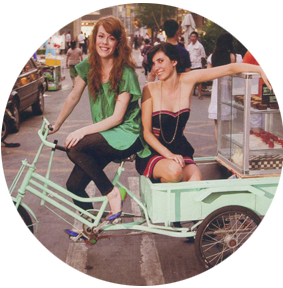
Even though it's been almost a year since Crystal died, I still see her every day. It's not because she's a ghost with unfinished business (she actually got a remarkable amount of great things done in her 28 years) or because she's metaphorically all around us. I mean this quite literally: when your friend's name is stuff, you're going to see her all over the place. On ads and delivery trucks for water and vodka, on signs for fortune tellers, on labels for deodorant, in Taylor Swift and Yung Lean lyrics, in everyday conversations. Things are crystal clear. They crystalize. Sometimes they even ring a bell!
The first time I met Crystal, I thought she was joking when she said her last name was Bell. Nope, "like a bell made of crystal" she told me, as if that made more sense. Apparently, her sister Becky named her after her favorite cabbage patch doll. Crystal said she was hard to Google -- try it sometime, and you'll see lots of antique glassware (and a few strippers.) Sometimes I would put down her name in waiting rooms at the doctors' offices while she stocked up on free pretzels, and would get many a funny look from the nurses. Crystal Bell? They'd repeat her name, puzzled. Yes, Crystal Bell.
Crystal started using her middle name, Ruth, for better SEO and consistency in her many online profiles, but she also liked to spell her name in emjoi for short, and for fun: 🔮🔔
Crystal liked crystals too, she wore lots of necklaces and rings made of crystals. When we cleaned out her room, there were enough for all of us to take one home. It's nice to get compliments on the silver crystal around my neck every once and a while, though I wish she was still around to tell me which outfits to wear it with.
Since our Crystal's been gone, I've met a few others. It's strange. They usually look nothing like her, but most they've been pretty nice. There was Crystal, visa officer at the Chinese embassy; Crystal, the composer and double bass player in rural China. There's been the Web app Crystal. It was very creepy, but she would have liked it, she never liked fretting over how to sound in emails.
Julie wrote about all the ways our Crystal is still around digitally, and about how it's impossible to remove her from our favorites. She'll always be our favorite, but in a way, it's kind of reassuring to know there are countless other Crystals out there, both inanimate and very much alive.

Cancer really breaks up the monotony of first date conversations.
Crystal kinda blurted it out halfway through ours. She wanted to get it out of the way. She said she had been treated for melanoma, but was currently doing well. I thanked her for telling me, and pretty soon, we were back to standard first date topics: hometowns, ambitions, siblings, and tattoos (hers—I’m the last person born in the ‘80s with none; she had a small paper airplane on her forearm). I was more interested in hearing about her time living in China. She was more interested in asking about my closest friends, and telling me about hers.
Cancer hardly felt like the most presently important subject. She didn’t seem like a sick person. Quite the opposite. She was lively, gorgeous, sharp, and extremely busy, working full-time for a large non-profit, while co-running a small non-profit in her free time. More than anything, mentioning cancer gave her a chance to talk in greater depth about her friends. One friend, who had a matching airplane tattoo, took care of her when she was first diagnosed. Another in New York joined her at every doctor’s appointment and took notes. Cancer seemed like an abstract data point in a fascinating person’s life. I was just trying not to blow it.
Before long, we were dating, and she very gradually filled me in on a few details of “the C word.” Mostly, she told me what she thought I needed to know. That she had a few scars—which I quickly stopped noticing; that her meds sometimes made her sick or exhausted—which was sometimes hard to perceive in someone so active and productive; and that she was a bit skittish about dating someone seriously—which warned me to let her set the pace of things.
By the time she was ready to solidify our couple status (with a note on Lisa Frank stationary, mind you), we were in a lovely honeymoon phase. We took a trip together. We met each other’s friends. I cooked for her. She gave me career advice.And then cancer became less abstract.
Crystal told me the news from her quarterly scans was “less than ideal” and asked if I wanted to cook dinner for her and Jess. Her friend with the matching tattoo had immediately flown in. They told me Crystal had brain tumors and said they’d put me in charge of food. The next day would bring gamma knife surgery (“Basically laser tag for my brain,” as Crystal put it, in typically colorful fashion) and the dozens of selfies she sent through Snapchat during it. Radiation would begin a few days later. Suddenly, I was not only part of a two-person relationship, but also part of a much larger support system. Whether this meant making a pharmacy run, taking her to radiation, or just making sure she took her meds on time when we were alone together, I was following orders from the people who were there before me, who Crystal had long trusted to be her partners in this. And this larger team allowed me to primarily be what Crystal wanted me to be: just a boyfriend. Because Crystal had such a strong support system in place, and because she drew boundaries and communicated so well, she was able to maintain a weird amount of normalcy in our relationship, even under wildly heightened circumstances.
Things weren’t the same, but dinners out together (sans alcohol) when she felt okay or movies on the couch when she was tired didn’t feel too different from normal. I was still cooking—and may I add, cooking for someone who’s extra hungry from steroids, and in her words, “eating like Ron Swanson,” can be kinda fun—and she was still plugging away at her career and giving me advice about mine, even during radiation. We still laughed and joked and exchanged flirty texts. We even laughed about how The Fault In Our Stars had come out just in time to be the worst date movie idea in history. Being together didn’t always have to feel like caretaking. When she wasn’t around, I knew which friends I could turn to. The same ones I told her about on our first date, just as she was leaning on the ones she had described to me. I quickly learned which people didn’t mind if I started crying in the bar. I was reluctant to turn to one close friend, who had lost two family members to cancer. Instead, he was there throughout to listen and advise, and to normalize things for me, like understanding before I did that Crystal was distancing herself from me a bit at one point because she was self-conscious about losing her hair.
What was most striking was that everything felt less stressful when she was around, because I was thinking about her and not it. Even with the power turned down a bit, Crystal was still Crystal, not some theoretical person fighting a terrible disease. One day, she didn’t feel like going into work between radiation sessions, so we both worked from my place. She gave me a pep talk about my new project and rattled off a long email of advice to a friend of mine who was getting a startup off the ground. Even the night before she died, she was updating me on new developments with her organization, China Residencies, and laughing over ice cream.
After she passed, I became all too familiar with the clichés and narratives about cancer. Some clearly wanted to paint our relationship as some sort of Nicholas Sparks romantic melodrama, when in reality, she organized her life to not be that. I’ve met people who’ve stood by partners through years of illness, but there are other roles for people in relationships where one person is sick. She had strong partners in her treatment before I got there, and while I was there for her, being the primary source of support wasn’t my role or what she wanted my role to be. She just wanted a boyfriend.
People also tried to soften the word “died” by saying “lost her battle with cancer” instead. I understand why people want to phrase illness and death in more elegant terms and talk about the nobility of sick people. But delicate phrasing can’t soften the inevitable pain and angst that comes with watching a vibrant person you love fall ill and die. And the cancer cliché distracts from the richer reality. Crystal wasn’t tough or courageous because she was sick. She was just as determined and strong when it came to work or travel or supporting friends or trying to convince me to use Google+. She didn’t die in battle. She died living her life.
The first time we had a frank conversation about cancer, Crystal told me, “I have an awesome life with a bad thing in it.” Though the bad thing raised its voice in Crystal’s final weeks, she never seemed to let it define her. She lived her life. I’m so glad she let that include me.
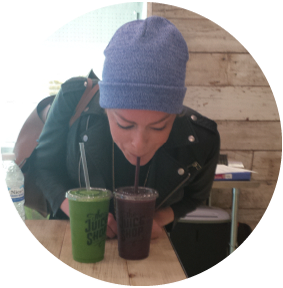
I never drank so much juice as I did with Crystal. Because we worked together, we also took breaks and had lunch together and just went for a juice in the afternoon to get out of the office. I really miss that. Anyway, the healing powers of green juice became the weird central thing on our minds — we were convinced the organic, cold pressed stuff would give us power and energy. In one of the last photos I have of Crystal, she’s looking cool as usual in a leather jacket and giant geometric necklace. This day she was wearing a light blue beanie to hide her hair loss, sipping a Blue Monday smoothie, her eyes big as she looked up and smiled while drinking through the straw. Her skin was singed from the radiation. I don’t know if I like the photo, but the image will be in my mind for ever. Anyway, sometime around then, she stopped drinking $12 green juice and moved on to ice cream. I never order Blue Mondays.

Crystal embraced the present, and the way she lived both before and after her diagnosis was a reflection of this. Her belief in LIFE and fully living never wavered. Crystal and I had met ten years earlier at similar stages in life, both raised in church and later both part of a house church together. Over the years as our friendship grew, we shared many conversations about spiritual things. With age, however, our spiritual beliefs gradually diverged. I found it can often be harder to use the language you used to share with someone after you've arrived at two different places. After her diagnosis, for example, I wondered things like: Do I tell Crystal before a doctor’s appointment that I’m praying for her? How do I bring up God in our conversations about cancer?
Crystal knew the "type" of friends she had, and she certainly chose to surround herself with a diverse group of people. She must've done this somewhat intentionally, because she could lean on us for different things at different times. Maybe I was the spiritually intense friend. I preferred depth over small talk, conversations about feelings over Friday night fun. Crystal didn't always need this or want this, so I learned when to probe and when to chill (it's hard to learn).
I will never forget one conversation in particular a few weeks before she passed away. As we headed to dinner together after her radiation appointment, she said, "I'm glad we have some you and me time. I want to talk to you about serious things." I responded, "You know I'm always willing to go there. Anytime you want."
As soon as we ordered our food we dove right in. She started by asking me what I believed about legacy. She wondered what legacy she would leave. We talked about all the causes and projects she had immersed herself in over the years and the imprints she would leave in those places. But I also told her that all of us who had been personally impacted by her would be carrying her with us; WE were her legacy.
We also talked for a while about what we think happens after death. Crystal believed we simply cease to exist, and in that there's freedom to really live. On the other hand, I believe in full restoration and perfection, which provides hope as we navigate the difficulties of life. Neither of us needed the other person to agree. We just needed that moment of togetherness, making space for transparency and understanding.
I think about that day a lot. I felt so connected to Crystal then, and she knew me well enough to know I needed a memory like that. Sometimes in life you just need to make space for an unfiltered and raw conversation about things that are normally really hard to talk about. For us in that moment, it seemed our worries were suspended, simply by being honest with ourselves and each other.
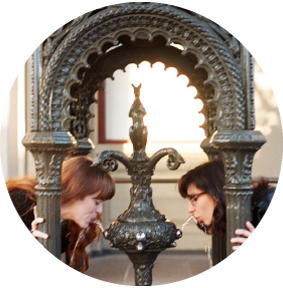
When Crystal started to realize that she didn't have much longer, she decided to eat a lot of ice cream. She had countless brain tumors by this point, and ice-cream helped with her headaches. Ice cream is also just delicious, especially in the sticky Brooklyn summers. One day, we were sitting on my bed and sharing a pint of raspberry sorbet, she asked me what I thought happened after.
“Probably not much,” I replied with a shrug.
“Yeah, I don't think there's anything after either,” she said, and we went back to eating ice cream.
Crystal was raised super Christian, and I grew up pretty Jewish, though neither of us really believed in any religion anymore, if we ever really did. We were both fairly ambivalent about the collective good and harm caused by millions of people reading very old books for guidelines on how to live their lives. After Crystal got sick, I started harboring particular resentment for all the time spent studying, discussing and fighting over religions, when that time could be better spent on, oh, I don’t know, discovering new cures for cancer…
But when Crystal was in the hospital and suddenly slipped into a coma the doctors told us she wasn’t going to wake up from, she was surrounded by people of so many different faiths who all turned to different thoughts and prayers. On her last day, preachers in Florida, imams in Canada, rabbis in New York, and nuns in Nepal all said prayers for her. And the rest of us who wander the spectrum from totally atheist to very-spiritual-in-a-non-denominational-kinda-way thought that was great. That’s a beautiful bit of proof for how religious differences don’t have to get in the way of anything, but it’s also just a testament to how cool Crystal was.

If you ever saw Crystal, the first thing you’d notice was her gorgeous, long, red hair. It flowed down to her ribs and was accompanied by bangs straight cross her forehead a la Zoey Deschanel. Her hair was iconic, a pop color reflective of her style — big, bold, and bright.
We’d joked about her love of wigs back in China. It was more than once that a picture would pop up on Facebook showing Crystal in a bright yellow or electric blue wig suitable for Nikki Minaj at some event out in China. But fast forward a few years, we’re in a radiology lab at NYU Cancer Center, just days after a her second gamma knife brain surgery, waiting for her consultation for the aggressive radiation she was about to endure. As Kira, Crystal, and I sat in the waiting room, I saw her turn to gaze at another 20-something year old patient, hairless, wearing a headscarf. This woman embodied the fear that she had for herself - actually looking like a cancer patient and all that comes with it; the different treatment, the awkward glances from strangers, and seeing an image in the mirror that was not really her. Crystal’s eyes were full of fear and sadness like I’d never seen before.
We went into the appointment to prep for the next few weeks of radiation, the most scary question she had was what would happen to her hair, to which we were given a response of “you may lose some or all of it”. It was unknown how her body would respond, and therefore it became yet another battle that she wanted to win. For her it wasn’t about vanity, it was identity. Despite what cancer had taken from her, Crystal always was able to put on a brave face, cover up the scars from multiple surgeries, and keep a miraculously normal look. Radiation could ruin that.
I went home for a couple of weeks and returned the week after she finished radiation. She told me in advance that her hair had transformed into a rat’s nest under her headscarves. My job was to help her untangle it. I arrived wiped from an red eye to find Crystal with a bag of frozen edamame on her head. The radiation had burned her scalp terribly and this helped her cool it down while we worked away on her laptop. I napped on the couch, and woke up to help her untangle her hair before we left for the wig appointment Kira arranged. When she took off her scarf, I was horrified. Her once flowing locks had transformed into a dry, matted helmet atop her splotchy burned scalp.
I spent hours trying to untangle the dread while she sat on the toilet in her bathroom and muscled through the pain of any movement it took. As gentle as I tried to be, I know she was feeling insurmountable pain. I begged for her to let me cut it, knowing it would feel much better, but had the response of the biggest emotional meltdown like I’d never witnessed. In this moment, the years of frustration and trying to remain positive and optimistic vanished and a flood of steroid enhanced rage flowed from her in a fit of screaming and tears. It took a large anti-anxiety pill induced nap to calm her down from the cathartic release. It was the hardest moment I’d been through with her yet.
Once she woke up, we headed out to meet Kira at the wig consultation, and an angel in the form of a medical hairpiece technician took over. This kind, sassy, woman put Crystal at ease and with one look at the helmet of matted hair, she mandated that it had to go. Crystal seemed relieved at the promise of getting normal hair again and obliged. She snipped it off and started pulling red wigs. The Nikki Minaj aspirations had subsided and the promise of looking normal again brought joy back to Crystal’s face. We found one that was a perfect match to her color, made of human hair, and mimicked a haircut that Crystal had back in college - not quite as long as before, but past her shoulders with vibrantly red. She smiled bigger than I’d seen in weeks. We had a photoshoot with the manikin heads for the wigs, and laughed and laughed. She looked in the mirror and saw herself again, and it was worth every dime.

Some people are born with the gift of color. Everything they touch becomes a bit brighter. They see ways to match purple and red and orange in graphic design, vintage clothing, and hair color. This was Crystal Ruth Bell. Despite her fair skin, she had the gift of color in abundance.
Originally hired to run a club program in schools, Crystal reinvented herself and our organization. That clubs program was a failure. Crystal wasn't. She championed the user at every turn. She brought user testing to a new level here and with great determination she forged a culture of design, consistency, and beauty. It wasn't her job. She did it because she cared. And because she had the gift of color.
Working at DoSomething.org was only part of the positive impact she had on the world. She and friends developed a prototype of an app to manage doctor notes and test results for patients and caregivers. (It was recently accepted into a highly competitive accelerator program. No surprise there; that’s how Crystal rolled.) She was also a champion of the arts in China, having lived there for two years before joining us in New York. Most people would have left the country and closed that chapter. Not Crystal. Her advocacy morphed into a full-blown not-for-profit program, China Residencies, supporting arts residencies and cultural diplomacy. (Yes, Crystal made us all feel we could do more, if only we were as good and strong as she was.)
In the last months of her life, while battling stage 4 cancer, Crystal fell in love, travelled to Australia, and never stopped pushing us to be better (and to wear sunscreen). She was in the office on Friday, quietly working hard, in an adorable hat and wig, which didn't quite capture her natural mermaid-like looks. No synthetic garb could emulate that gifted orange color.
She passed away on Sunday, surrounded by friends and family. She was in the hospital in a deep sleep for only a few hours. We'd like to think this was all her plan, to die the way she lived, an endearing control freak ‘til the end.
Today, we promote her to Creative Director. It is the title she lived, in the office and life. She will be missed, and not soon forgotten.

I remember scrolling through pictures of wigs with Crystal on her iPhone, trying to casually talk about which cut and color would be most flattering. We were sitting on my sister Kira’s couch surrounded by friends. It was one of those moments that stands out more in hindsight. None of us could know it would be her last week but there we were, debating the merits of bangs versus no bangs, natural color versus full-blown neon.
I remember Kira asking around if I knew of any job openings because her friend Crystal, who she met in China, was moving to New York. I had never met Crystal in person until that point but had heard all about their adventures in Beijing. My boyfriend Mike who works at DoSomething was telling me about open positions they needed to fill and one thing leading to another, Crystal walked in for an interview and walked out with a job.
I remember Kira’s birthday party last year, and the epic barbeque we threw in her backyard. It was the first time I met Amos, Crystal’s boyfriend, and we talked all night. Fellow filmmakers always seem to have a way of finding each other. He was so sweet, so attentive, so in love with her. Halfway through the feast, Crystal and I both realized there was no birthday cake. After some covert texting, we snuck out to a bakery around the corner and came back with a whopper of a chocolate cake.
I remember how hard it was snowing outside. Our parents were in town and we went to see Anne Hamilton’s show at the Armory. Kira and Crystal were deep in talk about China Residencies, the non-profit directory they were creating to consolidate all of the artists residencies of China in one place. They were swinging from the swings sitting next to each other — perfectly in sync and deep in conversation. I’ve looked everywhere for the little video I took of the two of them and I can’t find it anywhere.
I wish I remembered more. I was in the dark about how serious Crystal’s cancer was until pretty late in the game, considering she was my sister’s best friend and my boyfriend’s coworker. I knew she had had cancer but when it reappeared and Kira started going with her to the various doctor’s appointments, I optimistically thought the best, always. Kira told me later that Crystal specifically didn’t want people to know how bad her situation was because she didn’t want to be treated any differently. Some people may disagree but I think not knowing really made me be my most natural self around her. It was only in June that Kira told me how things had taken a serious turn. I tucked that information away in a dark little part of my brain and we all somehow kept keeping on.
I remember the worst day the most. Getting a text message from Kira that they were at the hospital and racing over heart pounding the whole way. I remember waiting for Ruth, her mother, and Becky, her sister, to drive in. I remember that whole day vividly while so many other happier Crystal memories have gone fuzzy around the edges. I remember the conversation Ruth insisted we have in the waiting-room, about the memorial she wanted to plan while we all still had somewhat of a grip. Crystal wanted something outside, in a garden said Kira. We settled on my backyard and I called my landlord Lewis, who of course agreed it would be the perfect spot.
I remember the memorial party and everyone dressed in Crystal’s beautiful bright clothes. I remember Kira’s speech, which still brings tears to my eyes when it pops into my mind, unannounced. I remember everyone taking foreign coins from a jar where she collected them from her travels. I got a penny from Hong Kong that is still in my wallet.
I remember her brightness in every sense of the word. She shined like the bright crystal, loud and clear like a bell. As we all left the hospital that night, we noticed the bright Supermoon looming in the sky. I hoped it would guide her. A little over a year later, I watched a blood-red lunar eclipse from a plane, Crystal never far from my mind. She would have turned 30 this Monday and my heart is full when I see this website that was created in her memory by the people who loved her and knew her best.
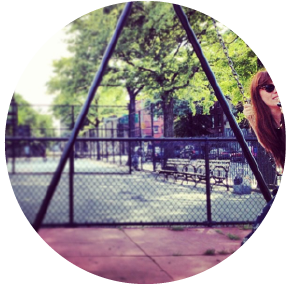
When I asked others what I could do for Crystal, they mostly told me to keep things normal, keep things light. So at the office I’d hug her and try to make her laugh and do this thing where we’d talk while sitting back-to-back on a giant purple ball she used as an office chair.
Except then she started treatments and was out of the office and therefore unavailable for hugs and back-to-back heart-to-hearts. I sent her Snapchats as small doses of normalcy and humor, but those began to feel too distant and ephemeral.
A few months earlier, my mom had given me this weird book of postcards. I decided to mail Crystal 14 postcards, one for every day she was in treatment. During that time, I went on family vacation with my free-spirited hippie grandma, Granny Shirley.
I invited her to decorate one of Crystal’s postcards with me. While I sat at a picnic table drawing on the card, Granny Shirley wandered around, gathering whatever caught her attention. In the end, our card featured crayon scribbles, magazine clippings, sticks, pebbles, pine needles, and a taped-on dandelion. It looked like the work of a drunk third-grader. With all its natural accoutrement, our resilient postcard also weighed several pounds. So we stuffed it into an envelope with extra postage and mailed it to Brooklyn. Over those two weeks, I mailed my other postcards, too.
The next Friday, I was back in the office and so, miraculously, was Crystal. Towards the end of the day, I found her in the office kitchen, and I sat down for a chat, which was more of a commiseration. She told me how exhausted she was. How she felt like shit. How she appreciated the outpouring of support from everyone but how she just couldn’t stand all the pink stuff and unicorn stuff and fluffy stuff people had sent her. Crystal was not the fluffy type. I wish I remembered her exact words, but then she said something like:
“I got your postcards — they were so weird. You get me.”
Walking home that evening, I happened to look into the window of a bar. There was Crystal, chatting with a coworker. She spotted me and blew a kiss. I blew a kiss back. She died two days later; it was the last time I saw her.

“Crystal and Ben’s First Dance” is our collaborative Spotify playlist that mainly features bubble-gum-summer, electro-pop club-banger bops. The rule was that we’d alternate, each adding one song at a time.
When Crystal got really sick, she stopped contributing songs, but I still added one every time I thought of her. After she died, I reviewed the playlist. The last song she’d added, weeks before she even started treatments, was St. Vincent’s “Birth In Reverse.” I still haven’t listened to it.

When her friends and family cleaned out Crystal’s apartment after she died, they gave me her (full) piggybank, which is shaped like three owls. I was flattered to receive one of her possessions, but I had no idea what to do with it.
For months, the bank sat on my desk at work until one day someone bumped it. The bank crashed to the floor, broke in half, and spilled change everywhere. I wasn’t there, so someone scooped up the change and put it into the nearest container they could find.
It was a Chinese takeout box.
When I saw the box, I knew what I needed to do. I counted the change, rounded $19.78 up to $25, and donated it to the Crystal Ruth Bell Residency, which funds artists in China. The owls, cracked but unconquered, still sit in two pieces on my desk.

Some of my fondest memories of Crystal are chatting with her via Skype when she was in China. She was usually wrapped up in a blanket. I still can't comprehend how she did so many years in the cold. That's one thing that made Crystal, Crystal. She wasn't interested in the conditions, but the outcome. She would go to many lengths for adventure and creating something new. It was always fascinating to chat with her in China and learn all the amazing things she was up to, the interesting people she had met and the art that she was creating and facilitating. She worked harder than most. She didn't let any opportunity pass her by. She brought meaning to the programs she poured herself into. It was quite a bummer that it was cancer tests, etc. that brought her back to the States. I mean I am glad it brought her back, because NYC is a little easier to visit than China.
I miss Crystal deeply and still mourn the things in life that I can't share with her. But her drive to create and be happy lives on in me and countless people.

Things to NEVER say, aka terrible things people said to us when we told them the news about our friend.
“Wow that’s terrible. I had a really shitty day too, and I kinda want to break up with this guy I’ve been seeing.” Um, give a fuck about your problems?
“She’s a fighter” Eh, she had a competitive streak and like being good at things, but she actually wasn’t particularly combative.
“I know she’ll beat it” You know less than Jon Snow.
“She’ll kick cancer’s butt.” Cancer doesn't have a butt.
“But she’s so young!” Yup, we know. It happens. Unexpected, but it happens.
“My old cat had cancer.” But you got another cat.
“My friend’s newborn baby has cancer” That’s absolutely horrible! And no I don’t automatically have anything in common with your friend, cause my friend isn’t a baby.
“My ex-husband died of melanoma” That sucks. But I don’t really want to know about people who died, thanks.
“Bob Marley died of melanoma” True, but see above.
Nothing. Well this one is the worst. Awkward silence anyone?
Don’t say all the above, but do say something! And if you don’t know what to say, you can say just that. And if you don’t want to say something face to face, these cards are pretty great: Empathy Cards for Serious Illness by Emily McDowell
Disclaimer
We’re not doctors, psychologists, or counselors. We’re not life-coaches, or your parents, or experts on cancer. We’re not here to tell you what to do, we’re just sharing what we went through, and what we think was helpful for Crystal and for us while dealing with cancer. Our hope is that what you read here helps you in some way, but remember to think for yourself and use your own judgment! And always, if you’re experiencing a medical emergency, don’t google it or rely on what we've said here, call 911.
